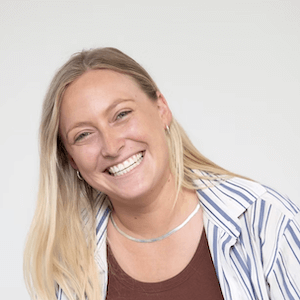On January 1, 2016, I began my journey as a freelancer. At the time, I had no idea that my one-person business would one day generate six-figure annual earnings.
The road wasn’t always easy. I had to learn many things the hard way, and there were moments when I wished someone had shared valuable tips or guided me along the way.
That’s why I want to share my 7 most important lessons with you, to help make your start as an online marketing freelancer a little easier.
1. Dedicate One Hour Each Week to Working on Your Business
To run a successful business in the long term, it’s not enough to work for your business—you also need to work on it.
Beyond client work, it’s crucial to regularly focus on your positioning, business model, marketing strategy, website, or onboarding process. Think of this time as an investment in your business, ensuring its growth and development.
Block at least one hour each week in your calendar for this. Without a dedicated time slot, this vital part of freelancing can easily be neglected.
2. Invest in Yourself and Keep Learning
As a freelancer, it’s easy to stay in your comfort zone, perfecting your methods and techniques. However, this can sometimes lead to missing out on new trends and developments.
Since the beginning of my freelancing career, I’ve made it a point to invest in my education and seek fresh perspectives. I regularly attend training sessions, learn new methods, and visit conferences like Ad World to gain new ideas.
When I find myself stuck on a project, I now book consulting sessions with other freelancers. Their fresh insights often open up new approaches, even in areas where I consider myself an expert.
Sometimes, you simply need an outside perspective to see the bigger picture.
3. Take Breaks
Breaks are essential for your creativity and well-being.
Make it a habit to take regular breaks during your workday. Ideally, step away from your screen and go for a walk. Equally important are work-free weekends and regular vacations.
Taking breaks helps prevent burnout—a crucial lesson I learned during my freelancing journey. I now set clear boundaries between work and leisure, taking deliberate time off and refraining from checking emails during these periods.
Additionally, I’ve learned to say "no" to new projects when I’m already at capacity.
Which brings us to the next tip...
4. Learn to Say No and Set Boundaries
Saying "no" is one of the most essential skills you need as a freelancer.
- No to the wrong clients.
- No to unrealistic expectations.
- No to poorly paid jobs.
- No to excessive demands.
- No to calls outside your working hours.
In addition, you should learn how to set boundaries and clearly communicate them to your clients. Most clients will respect these boundaries and, in many cases, appreciate having clear guidelines for things like project timelines and workflows.
Once you’ve established a level of trust with a client, you can make exceptions when necessary. However, it’s critical to clearly communicate that these are one-off exceptions. Otherwise, exceptions risk becoming the norm.
If clients fail to respect your boundaries or repeatedly disregard them, it’s time to part ways. Believe me, there are plenty of clients who are more than willing to respect your limits and value your professionalism.
5. Befriend Other Freelancers
Having friends who are also freelancers can make many aspects of freelancing easier.
- You can meet up to work together.
- You can discuss industry trends and developments.
- You can ask for feedback.
- You can talk about challenges and problems.
Often, you’ll realize that they face similar challenges, making it easier for you to deal with your own. Sharing tips and solutions with each other can be incredibly valuable.
I’ve found that being open about my problems and sharing my learnings with others is far more productive than keeping secrets. Collaboration and mutual support often lead to greater achievements than working alone.
Creative communities, like the Creative Lunch Club, make it easier to connect with others in the creative industry.
6. Hire an Accountant
As a freelancer, some tasks are best outsourced—and bookkeeping and taxes should be at the top of that list.
Early in my freelancing career, I wanted to keep my fixed costs as low as possible, but I decided to hire an accountant from the start. It was one of the best decisions I made.
Without expertise in accounting or taxes, I would have spent far too much time on these tasks and still wouldn’t have been confident that everything was done correctly. An accountant not only takes these tasks off your plate but also gives you peace of mind.
7. You Are Not Your Work
Finally, an important reminder: You are not your work.
As important as your career is, don’t forget that friendships, relationships, leisure, and social life are even more vital. For me, freelancing has always been a way to create the lifestyle I want—a life where I have flexible working hours, can exercise in the mornings, or work remotely while traveling.
Try to shape your work around your lifestyle, not the other way around. This approach will make you happier, more fulfilled, and ultimately more successful in the long run.




